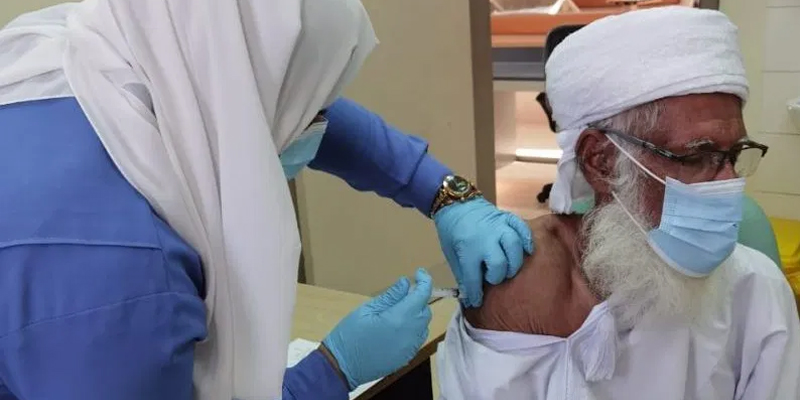The Sultanate faces a growing rise in obesity among its population as more than half of the Omani population is now overweight or obese with 30 per cent of the population having a BMI of more than 30. These figures show a rise in the prevalence of obesity in the country since the last survey in 2008, especially among women.
The Sultanate faces a growing rise in obesity among its population as more than half of the Omani population is now overweight or obese with 30 per cent of the population having a BMI of more than 30. These figures show a rise in the prevalence of obesity in the country since the last survey in 2008, especially among women.
This was stated by Dr Ahmed bin Mohammed al Saeedi, Minister of Health while launching a book.
Coinciding with the marking of World Obesity Day, Oman Obesity Briefing Book titled ‘Obesity in Oman, a Major Public Health Challenge’ was launched on Sunday at the Ministry of Health headquarters. The launch took place through a virtual event held under the auspices of Dr Al Saeedi.
This important document has been developed in collaboration between the National Diabetes and Endocrine Centre (NDEC), the Department of Non-Communicable Disease, the Department of Nutrition, the Oman Diabetes Association and Novo Nordisk, a Danish multinational pharmaceutical company.
He said that there is an increasing recognition worldwide that overweight and obesity are not only problems of individuals but also for the society.
In his address, Dr Al Saeedi said: “The causes of obesity are complex, but one of the key drivers is in the way we eat and how much we move, which is changing dramatically. As a result of change in our environment, unhealthy processed food and the technology that promote sedentary lifestyles has become more readily available. Unfortunately, convenience has led us to adopt an unhealthy lifestyle, which in turn has led to obesity.
“Even though there is no simple or single solution to the obesity epidemic, if we are to fight this escalating crisis in our societies, a coordinated response that goes beyond the health sector is crucial. Only through the engagement in multi-sector dialogue and relentless commitment to work together on reducing the burden of obesity we can promote health and prevent disease.
“The importance of population-based changes in the socio-environmental variables that influence energy intake and expenditure cannot be stressed enough. Marketing restrictions, dietary guidelines, policies that focus on improving environments like schools and workplaces are only but some of the many interventions that should stop the drastic spreading of obesity,” the minister added.
Speaking on the occasion, Dr Noor al Busaidy, Director of National Diabetes and Endocrine Centre, gave an in-depth view of the Oman Obesity Briefing book and said: “This book seeks to inform policymakers, healthcare professionals and the general public of the serious and widespread health challenge of obesity in Oman by highlighting its impact on society and individuals.
“The book also aims to emphasise opportunities for the prevention and management of obesity as a disease as well as showcasing initiatives that have been introduced in Oman to address this issue.”
In 2019, Oman hosted the World Obesity Regional Conference on Women and Child First, and the Gulf Obesity Surgical Society’s sixth annual obesity conference. These events signal that the health community in Oman is committed to addressing the issue of obesity for vulnerable groups and ensuring treatment for people with severe obesity.
However, until obesity is recognised as a serious chronic disease, treatment options are likely to remain limited, despite the substantial impact that obesity can have on the quality of life for individuals and the capacity of healthcare systems.






























